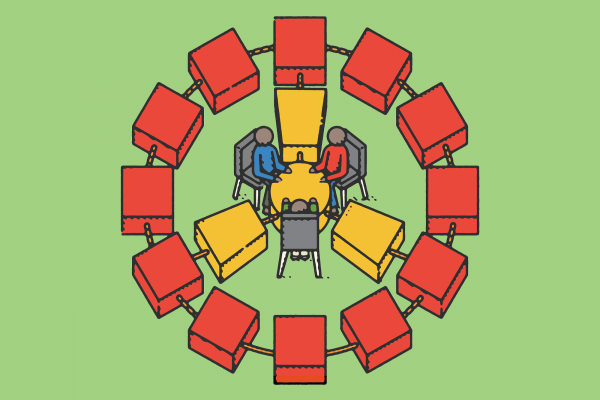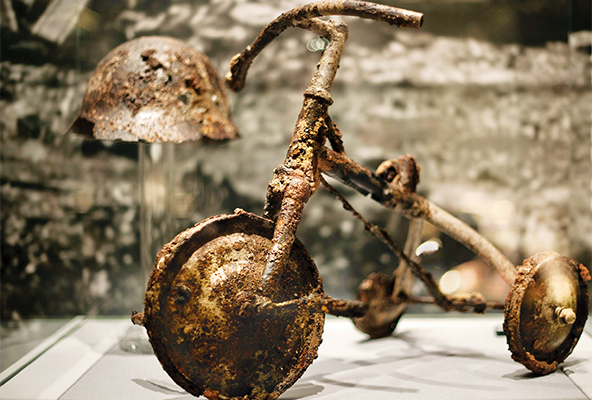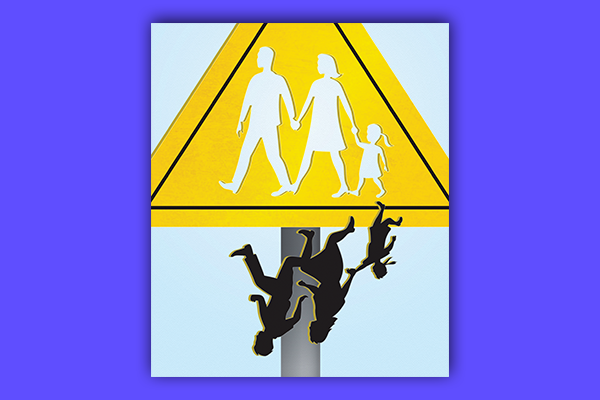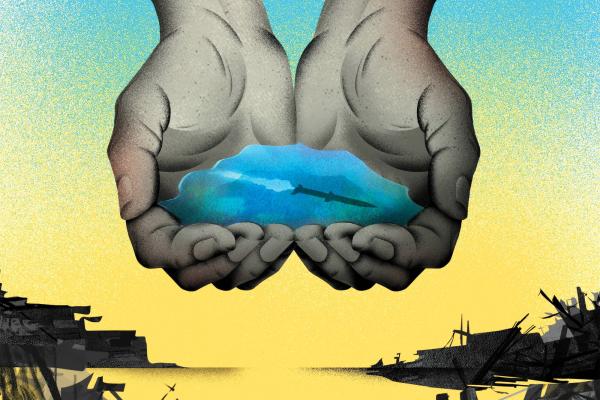THE INTERNATIONAL COMMUNITY is scrambling to salvage the 2015 Iran nuclear deal after the United States withdrew from it in 2018 and reimposed harsh sanctions on Iran. At stake is how much sanctions relief to offer in return for robust international oversight of Iran’s nuclear program. Blockchain technology allows us to fundamentally reframe this question: What if countries could offer real-time visibility of their nuclear programs in return for positive financial incentives?
Blockchain is an information management tool for governing large networks in low-trust environments. Uniquely, however, it can both facilitate and financially incentivize cooperation among nontrusting parties. This suggests a potential role for blockchain in normalizing habits of international cooperation, including by helping build trust in nuclear nonproliferation and disarmament agreements.
At least three attributes of blockchain are relevant in that regard. First, participants in a blockchain network can share control of governance mechanisms, including decision-making, record-keeping, and transaction processing. This prevents anyone from altering the network rules or the common accounting ledger without first achieving consensus.
Second, the software’s unique method for recording transactions—grouping transaction data into cryptographically secured “blocks” and linking them sequentially into a “chain”—means that each data block is partially defined by every preceding block, so changing any data alters the entire subsequent record. Combined, these mechanisms make it extremely difficult to secretly tamper with a blockchain, deterring attempts to do so. A blockchain thus creates a definitive source of shared “truth” that participants can trust without needing to trust each other, enabling norms of transparency, verification, and data integrity—nontrivial capabilities in a “post-truth” world. For example, blockchain could help to sustain a robust system for tracking nuclear material by creating an immutable record of its chain of custody.
Third, blockchains reward rule-compliant participation by issuing tokens (such as cryptocurrencies) that are redeemable for national currencies. This could be used to create positive financial incentives for disarmament cooperation, making peace a profitable business and inverting the incentives of the permanent nuclear war economy. This would complement nuclear weapons divestment campaigns by enabling citizens and corporations to earn money through societal verification of disarmament, using a “verification coin” to reward participation. Financial incentives matter because nuclear disarmament is not just a technical challenge of getting rid of bombs—we know how to do that. As international law expert F.S. Dunn wrote a year after the U.S. used atomic weapons in Japan, achieving disarmament will likely require “making faithful participation in an international control scheme highly profitable and its evasion or violation highly unprofitable.” By aligning financial self-interest with the collective interest and entrenching large opportunity costs for avoiding or trying to cheat a disarmament process, a blockchain-based system could create vested interests in sustaining disarmament progress and, over time, strengthen trust that others were acting in good faith.
Given the power of digital technologies, however, it is also essential to consider their risks, including the risk of exacerbating societal injustices through “coded bias.” For example, researcher Joy Buolamwini discovered that facial recognition software does not see dark-skinned faces accurately. And experts at UN Women note that blockchain developers “are mostly men from developed economies that seem to outnumber not only women, but also other diverse populations.” As Pope Francis writes, “technological products are not neutral, for they create a framework which ends up conditioning lifestyles and shaping social possibilities along the lines dictated by the interests of certain powerful groups. Decisions which may seem purely instrumental are in reality decisions about the kind of society we want to build.”
The church provides important ethical leadership on disarmament in championing the UN Treaty on the Prohibition of Nuclear Weapons. But there is also an urgent need for ethical leadership on new technologies. The church could provide this leadership by highlighting how power and privilege shape new technologies and seeking to include historically marginalized populations in their development. Approached in this way, blockchain allows us to imagine and build more transparent, democratic, and equitable systems that truly serve a just peace.

Got something to say about what you're reading? We value your feedback!







